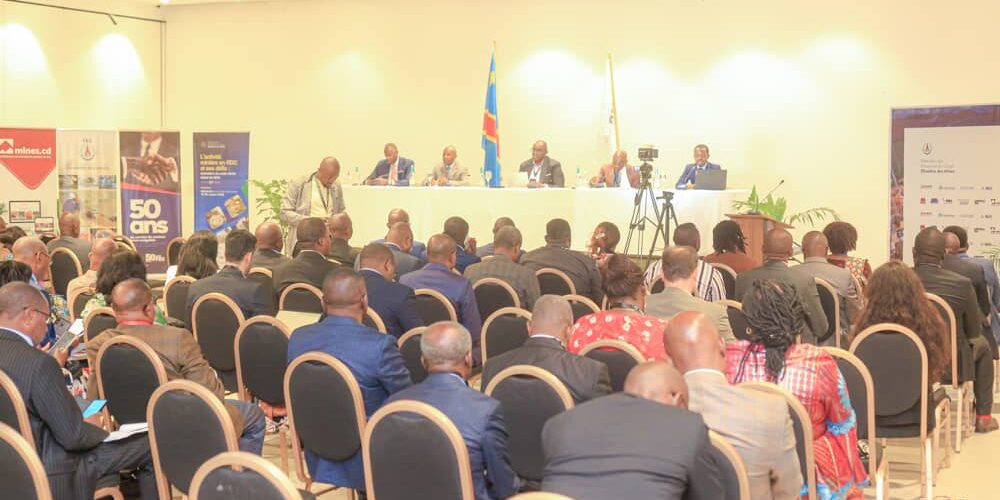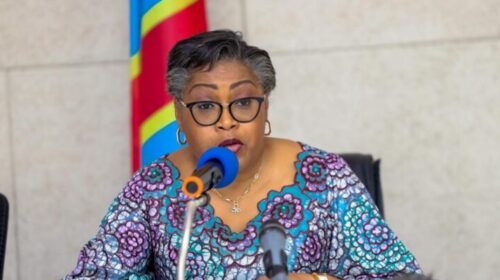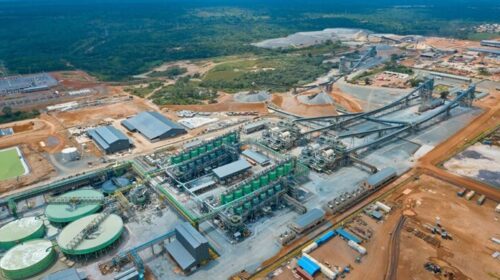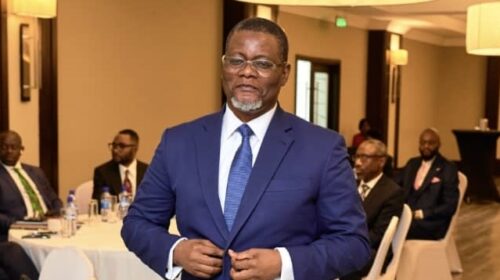Mining Code Review Forum: FEC Chamber of Mines recommends removal of redundant taxes
The Chamber of Mines of the Federation of Enterprises of Congo (FEC) closed, on Thursday, October 20, 2022, in Kinshasa, a mining forum focused on the theme: “Mining activity in the DRC and its challenges: evaluation of the revised Mining Code of 2018”.
At the end of this meeting, several recommendations were made by the four commissions set up for this purpose. These are the Mining Law Commission; the Energy, Transport and Logistics Commission; and the Taxation and Customs Commission.
First: Mining Law Commission
At this level, six problems have been identified:
– the problem of access to the exercise of Mining and Quarry Rights: it was recommended to revise article 23 bis of the Mining Code by clarifying the conditions reserved for legal entities governed by Congolese law and those required for foreigners.
– the interference of unauthorized services in the administration of the Mining Code and its implementing measures. Here, it is necessary to clarify the services coming under each ministry authorized to intervene within the framework of article 16 of the Mining Code.
– the problem of the invasion of the perimeters of mining and quarry rights: To remedy this, the participants suggest that it is necessary to accelerate the creation of several viable ZEAs and prune point e of article 30 of the Mining Code and diversify the economic activities of craftsmen.
– non-compliance with deadlines in the procedure for granting mining or quarry rights and issuing mining and quarry titles. On this subject, they believe that the Mining Cadastre should be instructed so that this service respects the deadlines provided for in the legal texts and the provisions relating to the granting of office.
– the industrialization of the mining sector: it is necessary to insert in the mining regulation of the provisions fixing the contents of the plan of industrialization as well as the methods of deposit of instruction, approval, and follow-up of this plan.
– the establishment of artisanal mining zones: the provisions requiring the Minister to request the opinions provided for in article 109 of the mining code must be respected.
Second: The Energy, Transport and Logistics Commission
Five issues were identified:
– the problems of insufficient supply of electrical energy in quantity and quality to cover the growing energy demand of mining companies.
Here, it was recommended in the short term to rehabilitate existing hydropower plants through Public Private Partnerships (SNEL and mining companies).
– incentive measures for investment in the sector: the Commission recommended that the Prime Minister renew for a minimum period of 5 years Decree No. 18/054 of 27 December 2018 setting the practical provisions on tax relief measures and customs applicable to the production, import and export of electrical energy which expires on December 26, 2022.
– the stability of the network into which energy from new power plants will be injected: it was recommended to adopt a global approach involving mining customers and SNEL around the table for rehabilitation that can secure all customers connected to the network.
– improvement of the business climate: it was recommended to abolish all redundant taxes and cancel the untimely controls initiated by the State services which weigh down and delay the development of the sector.
– the transport of commercial mining products by road and the problems of access to the development sites of new hydroelectric power stations: it was recommended to diversify the means of transport and logistics by using roads and railways and to promote the production of electrical energy in the North towards Kisangani where there are iron reserves in the production of steel for the construction of railways and other metallic materials.
Third: The Environment, CSR, and Local Content Commission
Seven issues were identified:
– the problem of overlapping and encroachment of mining rights on the areas of natural reserves (protected areas): it was recommended to revise article 5 of the Mining Regulations to comply with Law No. 14/003 of February 11, 2014, relating to nature conservation.
– the problem of conflict of competence and the lack of coordination between the Directorate of Environmental Protection (DPM), the Congolese Environment Agency and the Coordination of the Environment in terms of control and monitoring of environmental obligations: it is necessary to respect the legal and regulatory provisions and to accelerate the process of resolution of these problems by the three institutions at the level of government and parliament.
– the problem of managing waste and discharges from mining companies, which often pollute the environment: the regulations must be strengthened for the proper management of mining waste and its recovery and recycling.
– the issue of community consultation and non-submission of the summary and non-publication of ESIAs and ESMPs: the Commission recommended that mining companies must comply with the legislation and introduce an administrative or financial penalty for companies that do not comply with this obligation.
– the problem of double payment of the tax on deforestation in the event of a change in the location of the area to be deforested: the tax paid for the areas actually deforested must be considered and the field checked to ascertain the areas actually deforested.
– the various interpretations of the texts of the laws and their implementing measures concerning CSR: the Mining Code and its implementing measures must be popularized, and the capacities of the stakeholders involved in the mining sector must be strengthened.
– the problem of determining the (minimum) budget of the specifications: a study must be carried out to see what can be done to examine the parameter that can help determine the budget of the specifications.
Fourth: The Tax and Customs Commission
It is in this commission where there are several complaints from mining operators, namely:
– the problem of non-compliance with the principle of the exhaustiveness and exclusivity of the tax regime of the mining sector: it was recommended to comply with the provisions of article 276 of the Code by rejecting any legislation contrary to the Mining Code and to seize the Government to denounce any contrary practice.
– non-compliance with the provisions of article 234 paragraph 3 which limit the rate of royalties to be paid on export to 1% of the gross commercial value: it was recommended to harmonize the views in order to have a single value of base and it is the gross commercial value as stated in the Mining Code and to enforce this interpretation on all parties.
– the problem of the non-application of the provisions of article 220 paragraph 3: the basic principles must be adopted in terms of relief to be granted to requesting provinces in order to avoid tax discrimination.
– the difficulty of interpreting articles 71 and 80 concerning the free participation of the State when obtaining the permit and when renewing the said operating permit: it was recommended to improve the legislation by providing clarifications in the event of holding several permits for a single mining project and to take a regulatory measure to clarify.
– the problem of non-reimbursement of the VAT credit: set up the VAT exemption (which makes it possible to suspend the collection of VAT inside) in order to relieve the local industry and make it competitive in the mining sector.
– the issue of the Special Tax on Excess Profits or the tax on super profits on questionable bases: it was recommended to convene a session to harmonize views between the Presidency-Government-FEC tripartite.
– the problem of reclaiming tax on machinery circulating in the mining site and their registration: the provisions of the laws must be enforced.
– the problem of irregular collections in ASYCUDA and outside ASYCUDA during export operations of commercial mining products: the law must be enforced in this area and, if necessary, remunerate these services with the 1% exit duty collected by the DGDA.
![]()





